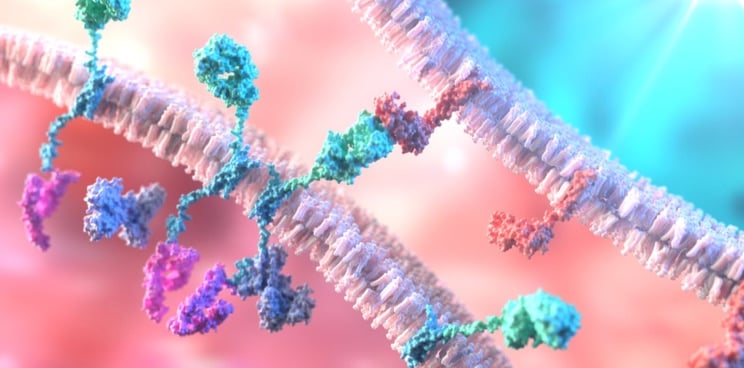Newsletter Signup - Under Article / In Page
"*" indicates required fields
London-based Autolus has shown its next-generation CAR T-cell therapy does not induce some of the severe side effects that have led to deaths in patients treated with CAR T-cell treatments currently on the market.
Since their arrival on the market in 2017, CAR T-cell therapies have provided hope to patients with rare forms of blood cancers that had not responded to other treatments. However, this cutting-edge therapy has caused controversy because of its price and several cases of severe side effects that have been linked to patient deaths.
The most common side effect of CAR T-cell therapy is cytokine release syndrome, an inflammatory reaction affecting the whole body that can be deadly when it reaches grade three and four — the most severe forms of the condition. Autolus has designed a new generation of CAR T-cell therapy in which the T cells are modified to prevent excessive activation of the T cells, which can cause toxic side effects.
Preliminary results across four different clinical trials testing two of Autolus’ CAR T-cell therapies were presented at the annual meeting of the American Society of Hematology. They have shown that no patients experienced cytokine release syndrome of grade three or higher.
AUTO1 — Reducing side effects
AUTO1 is Autolus’ most advanced CAR T-cell therapy. The treatment targets the CD19 antigen found in cancerous immune B cells responsible for certain types of blood cancer. This is the same target of the currently approved CAR T therapies Yescarta and Kymriah.
Autolus evaluated AUTO1 in a phase I trial recruiting adult patients with the blood cancer acute lymphocytic leukemia who had relapsed. There is currently no CAR T therapy available to these patients, and while chemotherapy works initially, up to 70% fail to achieve long-term remission.
The 16 recruited patients had a high tumor load and therefore a high risk of experiencing cytokine release syndrome. However, none experienced the most severe form of the condition, while three of them experienced strong neurotoxicity that could be managed with steroids. All of them were alive after 6 months — the median survival of these patients is lower than one year after relapse.
The therapy achieved a complete response in 87% of the patients after one month. In comparison Blincyto, the only therapy available to these patients that targets the CD19 antigen, has a complete response rate of 42%.
In another phase I trial, testing AUTO1 in children with acute lymphocytic leukemia, no cases of severe cytokine release syndrome were reported. In this group, 90% of 21 patients achieved complete remission after one month. Christian Itin, CEO of Autolus, noted in a conference call this afternoon that the CAR T cells could be detected in the patients for significantly longer periods of time than with Kymriah — after three years in one case. The survival rate was 71% after 12 months.
With the support of these positive results, Autolus is now getting ready to start a pivotal clinical trial in the first half of 2020 that, if successful, could lead to the approval of AUTO1.
AUTO3 — Overcoming resistance
While CAR T therapies targeting the CD19 antigen have shown unprecedented efficacy in blood cancer, it is estimated that in about a third of cases, the cancer becomes resistance by losing the target antigen. Autolus’ AUTO3 is designed to overcome this issue by targeting the CD19 and CD22 antigens simultaneously, thus reducing the chances of relapse.
The treatment was tested in a phase I/II trial that recruited patients with relapsed diffuse large B cell lymphoma — for these patients, CAR-T therapies Kymriah and Yescarta are currently available. No severe cases of cytokine release syndrome were reported in the 14 patients in the trial. One experienced neurotoxicity, which was resolved with steroids.
Five of the patients had a complete response. Four of those responses are still ongoing, the longest of which has lasted for 18 months so far. The company expects to reach a decision about the next steps for this therapy by the middle of 2020.
In another phase I/II trial in children with relapsed acute lymphocytic leukemia, none of the 11 patients experienced severe cytokine release syndrome or neurotoxicity. Nine out of ten had a complete response, five of which later relapsed. All of them were still alive after 12 months.
While these results are still preliminary, and Autolus is yet to confirm them in larger clinical trials, they pose a first proof of the potential of a new generation of CAR T therapy. In recent years, a number of players including Autolus have been working on technologies that can overcome the current limitations of the approved CAR T-cell therapies — including severe side effects, complicated manufacturing processes, and an efficacy restricted to blood or ‘liquid’ cancers.
Oncology R&D trends and breakthrough innovations







